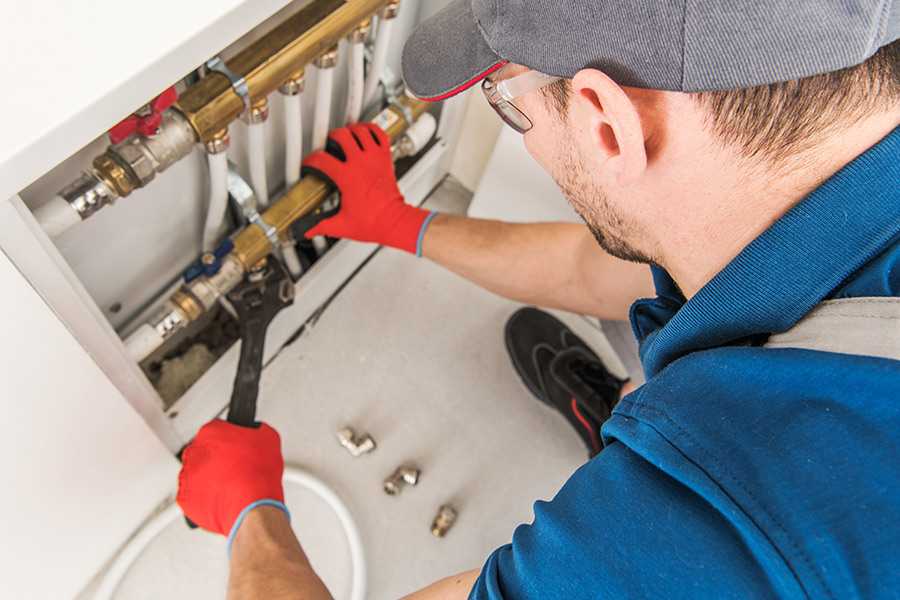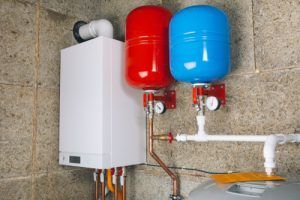Just about everyone maintains their personal assumption in relation to The Importance of Water Heater Maintenance.

A water heater is among one of the most vital basic appliances that can be located in a house. With water heaters, you don't require to undergo the stress of home heating water by hand every time there is a need to take a bath, wash, or the meals. There is constantly a possibility that your water heating system would act up as with many mechanical gadgets.
It is essential to keep in mind any type of little malfunction and tackle it quickly before things leave hand. A lot of times, your hot water heater begins to malfunction when there is a build-up of sediments as a result of continuous use. As a safety measure, regular flushing of your hot water heater is advised to prevent debris buildup as well as stop useful failure.
Typical water heater emergency situations as well as just how to deal with them
Insufficient warm water
It might be that the water heater can not sustain the warm water need for your home. You might upgrade your water heating system to one with a larger capability.
Rising and fall water temperature level.
Your water heater could start generating water of different temperature levels typically ice cool or hot warm. In this circumstance, the first thing you do is to guarantee that the temperature level is readied to the desired level. If after doing this, the water temperature maintains transforming during showers or various other activities, you could have a faulty thermostat. There might be a demand to change either the thermostat or the heating unit of your hot water heater.
Leaky water heater container.
In this circumstance, you must transform off your water heating unit, enable it to cool down, as well as thoroughly look for the source of the problem. At times, all you require to do is to tighten up a couple of screws or pipe connections in instances of small leaks. If this doesn't function as well as the leak lingers, you may need to use the solutions of a specialist for an appropriate substitute.
Tarnished or stinky water
When this happens, you need to understand if the issue is from the container or the water resource. If there is no funny scent when you run chilly water, after that you are certain that it is your water heating system that is defective. The smelly water can be created by corrosion or the buildup of bacteria or sediments in the water heater storage tank.
Final thought
Some house owners overlook little caution and also minor faults in their hot water heater device. This just causes additional damage as well as a possible complete breakdown of your device. You need to take care of your water heater faults as quickly as they come near avoid even more expenditures and also unnecessary emergency difficulties.
With water heaters, you do not need to go with the anxiety of home heating water manually every time there is a demand to take a bath, do the laundry, or the meals. It may be that the water heating system can't sustain the hot water need for your house. Your water heating system might begin producing water of various temperatures normally ice hot or cool hot. If there is no amusing scent when you run cold water, then you are particular that it is your water heater that is defective. The smelly water can be created by rust or the accumulation of germs or debris in the water heating system container.
Water Heater Burst: Why This Happens And What To Do Next
Water Heater Explosion Warning Signs
Since storage water heaters are made of metal and store large volumes of heated water, they carry an increased risk of leaking or even exploding as they begin to rust at the fittings and seams over time. If the thermostat controlling the water temperature within the tank is faulty, or if mineral buildup inside the water heater prevents the thermostat from sensing the water’s temperature correctly, the water could become overheated. This will expand its volume within the tank, causing it to press at the tank’s fittings and seams. If these fittings and seams are rusted or corroded, the pressure could result in a leak or even an explosion.
Here are some risk factors and warning signs of an increased risk of water heater leak or explosion:
Your water heater is more than 10 years old. Your water heater makes clanking, banging or rumbling noises as it heats up, indicating that sediment has built up and hardened inside the tank. There is visible rust on the outside of the water heater, especially located at the pipe fittings or the seams that run down the tank. There is rusty water coming from your water heater, indicating that there may be rust building up inside. Your water heater is leaking, which could indicate either a crack somewhere in the tank or a malfunctioning temperature-and-pressure (T&P) relief valve. What To Do When Water Heater Leaks
If you find water dripping or seeping out of your water heater, or pooling around it, it means your water heater is leaking. If you find a leak, it may be best to call a plumbing professional to diagnose the problem and determine how best to handle it. If you choose to tackle it on your own, there are a few things you can do.
TURN OFF THE POWER
Next, shut off the power to the hot water tank at your home’s electrical breaker box. If you don’t shut off the power, the heating elements within the tank could continue to stay hot, which could pose a fire risk.
If you have a gas-powered water heater, you’ll also need to shut off the gas line leading into the tank.
FIND THE LEAK
Now it’s time to determine where the leak is coming from. Likely locations are the T&P valve, the drain valve or one of the pipes or fittings that feed into the top of the tank. If you see any rust or corrosion on the outside of your water heater’s tank, pipes or fittings, these could also be the source of the leak.
REPAIR THE LEAK
Once you determine the source of your water heater leak, you’ll have a better idea of what steps you need to take to fix the problem. It may be a simple fix—such as using a wrench to tighten fittings or replacing the T&P valve—but it may be something more complicated. You may even need to drain the tank, remove the water heater and install a new one.
https://www.abchomeandcommercial.com/blog/water-heater-burst/

Hopefully you enjoyed reading our part on Is Your Water Heater Leaking?. Thanks for taking the time to read through our posting. Sharing is nice. One never knows, you may just be helping someone out. Thank you for taking the time to read it.
Immediate attention? Phone us!